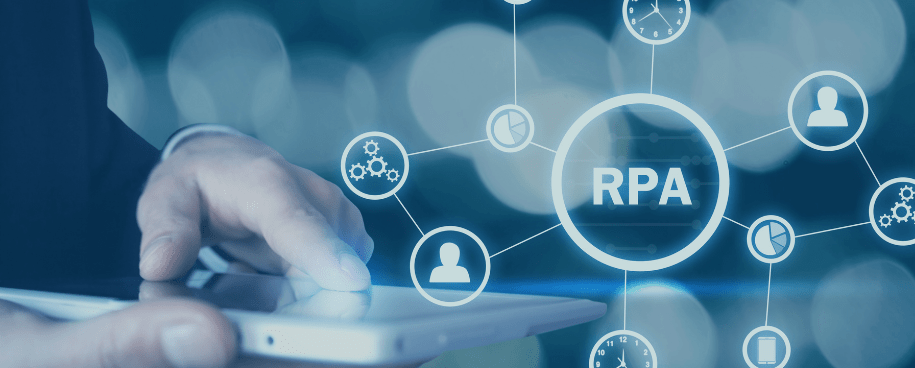
Robotic Process Automation (RPA) is an interestingly named technology which in reality has no involvement of physical robots. RPA is about automating enterprise processes, especially the repetitive and mundane ones. Scalability, accuracy, reduced cost and cycle times are some primary benefits of implementing RPA. Industries that involve a lot of paperwork such as banking, finance, insurance are the front-runners for RPA implementation. However, over time, it has branched into industries like e-commerce, manufacturing, healthcare, telecom among others. The COVID-19 pandemic has only accelerated the need for RPA as organizations are looking to reduce costs and increase productivity. Worldwide RPA spending is expected to be in the range of $2 billion in 2021, with a CAGR of nearly 20% year-on-year, according to a Gartner report prediction.
Here are the top RPA trends to watch out for in 2021 and beyond:
RPA Evaluation
From the above statistics, it is clear that RPA is not a fleeting trend. It is going to have a deeper bearing across many industries in the near future. The challenge for companies is to identify the right set of processes to automate. The best candidate for RPA implementation is a process that needs to run repetitively, has a business logic attached to it, and doesn’t require discretionary decision-making. RPA executes a process with accuracy and speed and plays no part in improving the process. The focus in the near future will be on identifying the correct set of processes for RPA and on process optimization which will, in turn, ensure a strong ROI from the technology.
Expanding Use Cases for RPA
RPA adoption is quickly crossing the realms of being used in finance departments wherein a lot of repetitive tasks have been automated. Organizations that have seen initial success in their RPA initiatives are looking to expand the applications of RPA to more and more areas within the enterprise. HR and Business Development are among the key areas in an organization where a lot of documentation is needed. For instance, the hiring process requires a lot of verification documentation. Doing this manually is a headache and can be error-prone. However, when RPA steps in, such tasks can make the hiring process faster and error-free. Another example that was witnessed during the pandemic-induced lockdowns was that many companies had to shut down their telephone number helplines due to rising consumer demand and a shortage of staff. Later, such companies started deploying chatbots to help report and in some cases resolve customer issues. This is where the challenge of ensuring a seamless customer experience while deploying RPA comes to the fore.
One of the biggest advantages of RPA is that it doesn’t need a large-scale or enterprise-wide implementation. To start with, a small set of processes can be selected.
Syncing RPA with Other Technologies
The real strength of RPA comes to the fore-front when it is combined with technologies like AI/ML. Contextual automation is going to be the way of the future. With AI, RPA will be able to learn discretionary decision-making. This means RPA will not just use business logic to execute processes but also start turning them into cognitive business assistants enabling execution and management of higher productivity workflows. This is when companies will start moving towards “Smart Process Automation (SPA)”.
SPA is sometimes referred to as RPA 2.0. SPA brings together business logic, human decision-making, and Machine Learning. Human decision-making comes into play when exceptions are to be made. Machine Learning by repeatedly observing the human way of managing exceptions in a process will enable automating processes that are not strictly guided by business logic. SPA will find applications in any process that deals with electronic, unstructured data. For instance, insurance companies can screen and process insurance claims based on data gathered from various documents.
Data Privacy: A Key Aspect of RPA
As RPA expands its application areas and becomes more intelligent, data privacy is only going to become more critical. When RPA is implemented in fields like HR, business development, healthcare, etc., ensuring the security of the data becomes of paramount importance since a lot of personal and sensitive information will be involved. High data encryption, ensuring automation execution in the background, and bots themselves not storing any data/information are some key ways in which data privacy can be ensured.
It is clear that RPA is here to stay and is going to be a critical component of digital transformation initiatives for companies in the future. Effective implementation of RPA will enable intelligent automation of several cumbersome and repetitive processes in an organization. This will enable humans to free up a significant amount of time and energy and use it for more strategic and long-term problems. The office of the future, including working from home will see humans working closely with automation technologies where automation will act as a capable business assistant.
To learn more about how we can help you automate your business processes, write to us at [email protected].





